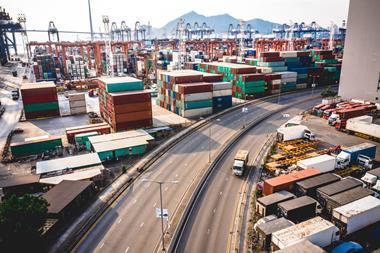Socio-economic changes and shifting consumer demands are among some of the challenges facing organisations
Research from Capgemini reveals that three-quarters of organisations have been impacted by closing facilities, supply chain disruptions, employee absence, and remote work in the past three years, and less than 20% of organisations feel equipped to handle the impacts of these changes.
The report explores how organisations across industries can leverage technology to create resilient, sustainable, and intelligent supply chains to navigate these disruptions and adapt in real time.
Greater focus on sustainability, global socio-economic changes, and shifting consumer demands has meant that organisations are facing considerable disruption to their supply chains.
In this context, leaders’ most pressing concerns are reducing CO2 emissions across all tiers of the supply chain (95%) and growing e-commerce volumes (90%).
“There are numerous building blocks that need to come together to create a future-ready supply chain network and provide differentiated offerings that customers are looking for,” commented Mayank Sharma, Global Supply Chain lead at Capgemini.
”The last few years have highlighted the need for organisations to build agile and resilient supply chains, not only to cope with disruptions but also to help them stay ahead of the curve, especially from a sustainability perspective
“It is clear that there’s no one-size fits all solution, but organisations that lay the foundation for a data-driven, technology enabled, scalable, and sustainable supply chain are the ones that will reap the most impressive returns in terms of driving improved customer loyalty, creating more business value and meeting sustainability goals.”
Becoming a ‘supply chain master’
Around 92% of organisations surveyed said that the ongoing relocation of the global supply chain will impact them but only 15% are equipped to deal with this.
Investing in supply chains now is critical for organisations to be prepared to meet future demands, cites the report.
On average over the next three years, organisations plan to increase their investment in supply chain transformation by 17% and expect to double their business outcomes in terms of growth, profitability and sustainability.
The report highlights a need for organisations to design resilient, connected networks with integrated data-driven planning. It suggests that technology will be a critical enabler here, giving organisations access to real-time insights which in turn can enhance the ability to predict change and help them plan for possible future scenarios.
‘Supply chain masters’ – organisations defined as having displayed the ability to successfully balance multiple demands on their supply chain – are already reaping business benefits.
The research found that this small cohort of respondents (9.5%) reported a 15% incremental growth in revenues, a 17% reduction in CO2 emissions as well as a 1.8 percentage point higher market share when compared with others.
Focus on sustainability is crucial
There is a clear need for supply chains to be at the core of these sustainability initiatives. The vast majority of organisations surveyed (95%) recognise the need to reduce CO2 emissions across the entire supply chain, but only 13% feel well prepared to handle these changes.
Currently, reducing Scope 1 emissions dominates an organisations’ sustainability initiatives (38%), versus scope 2 and 3 emissions which account for 22% and 27% respectively.
The report suggests that sustainable practices must be adopted across the value chain with transparent metrics set to measure performance plus real-time tracking systems implemented to monitor performance.
Investing in supplier training and education initiatives will help to empower stakeholders to make a real impact and enable an organisation to reach its sustainability goals.
The research found that only one in four have started scaling sustainability initiatives in their supply chains, highlighting opportunity for organisations to improve.




















No comments yet